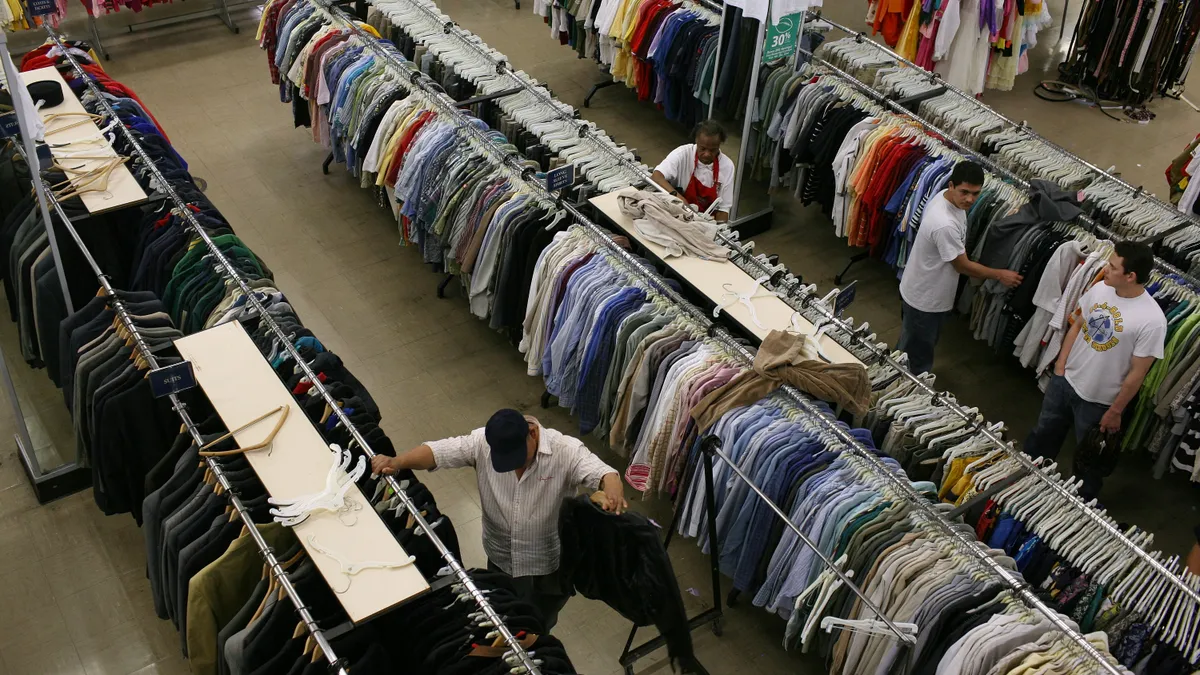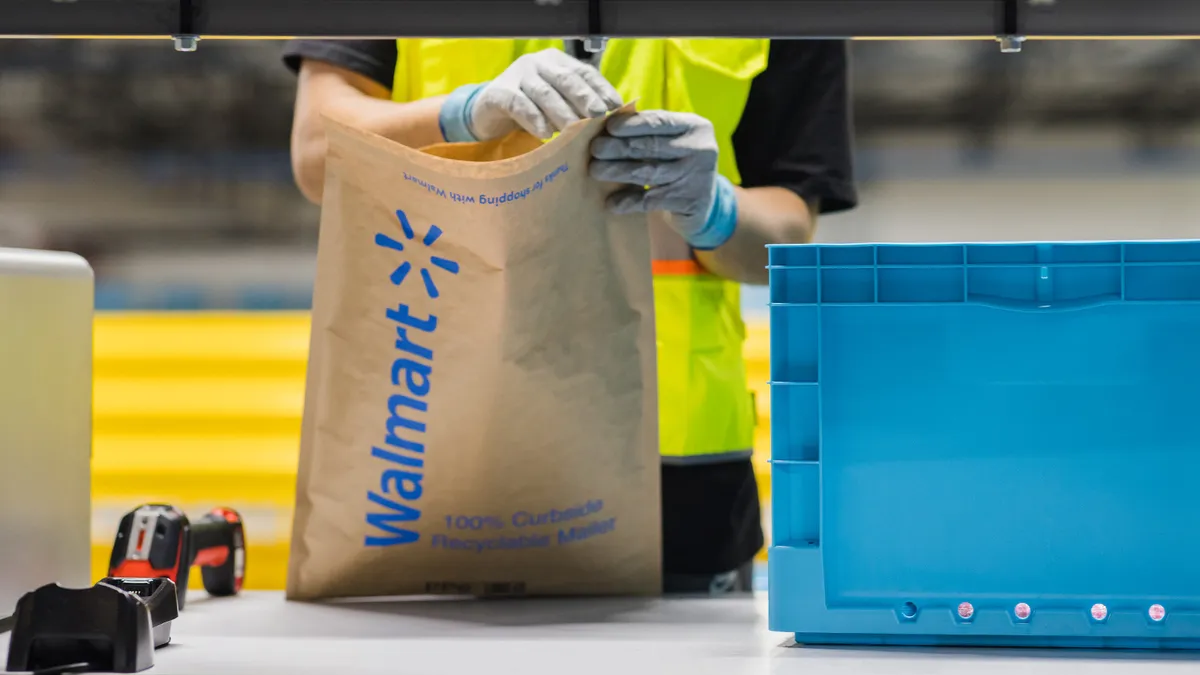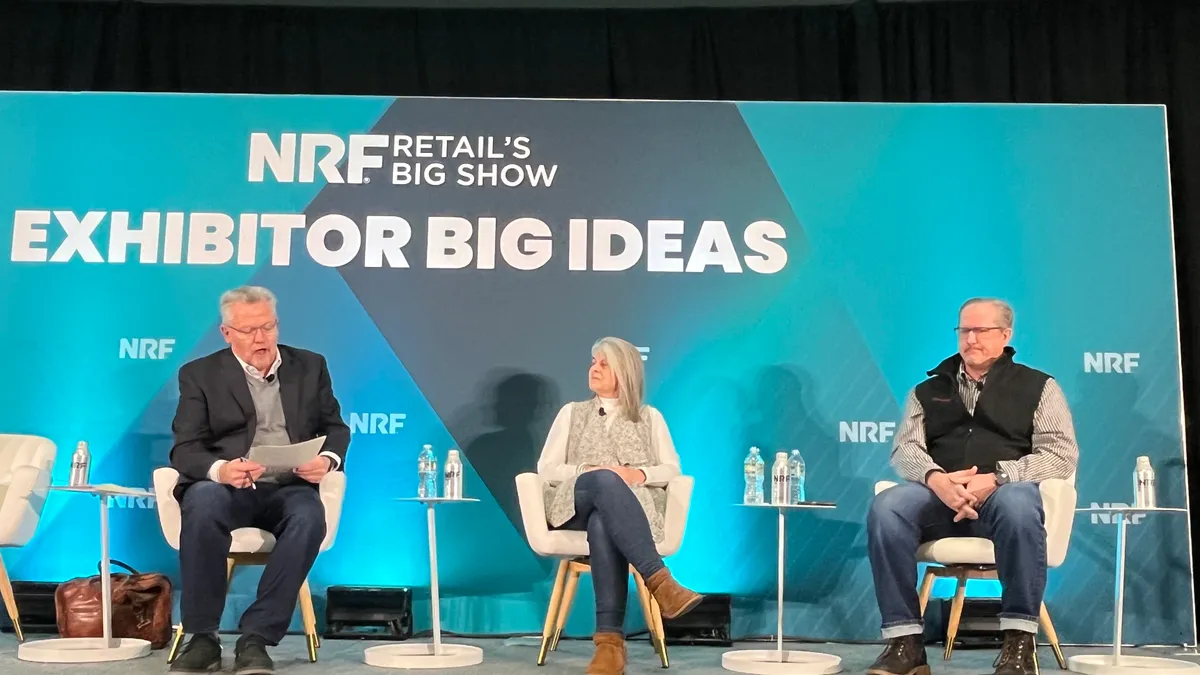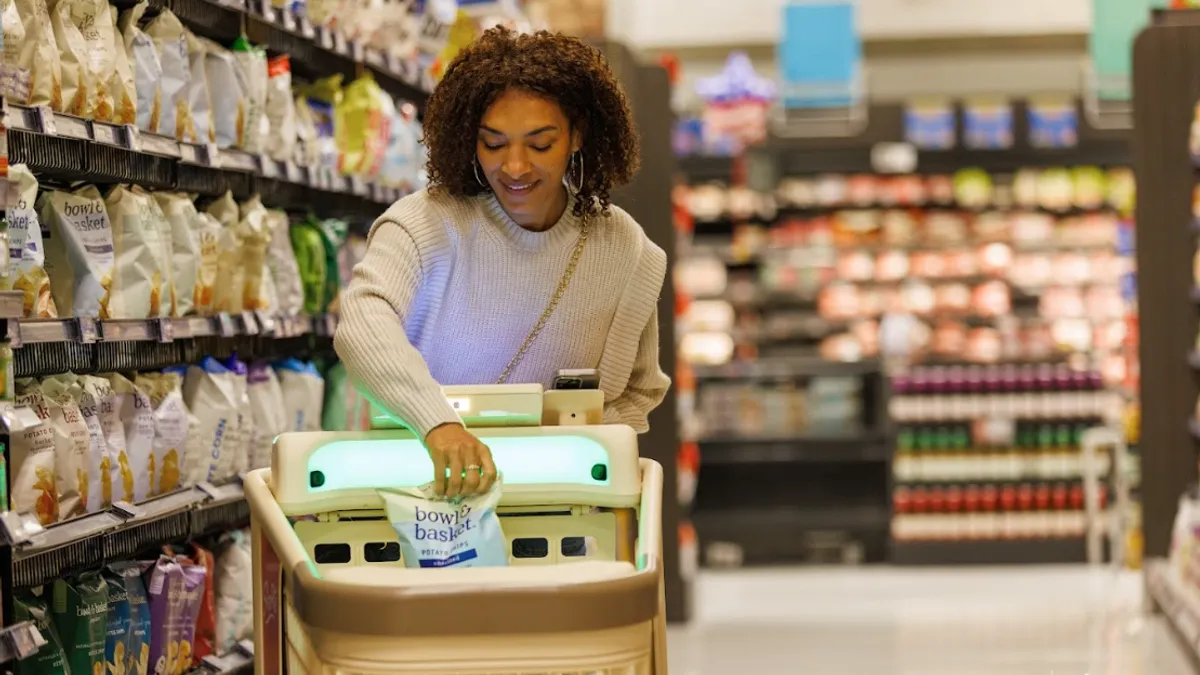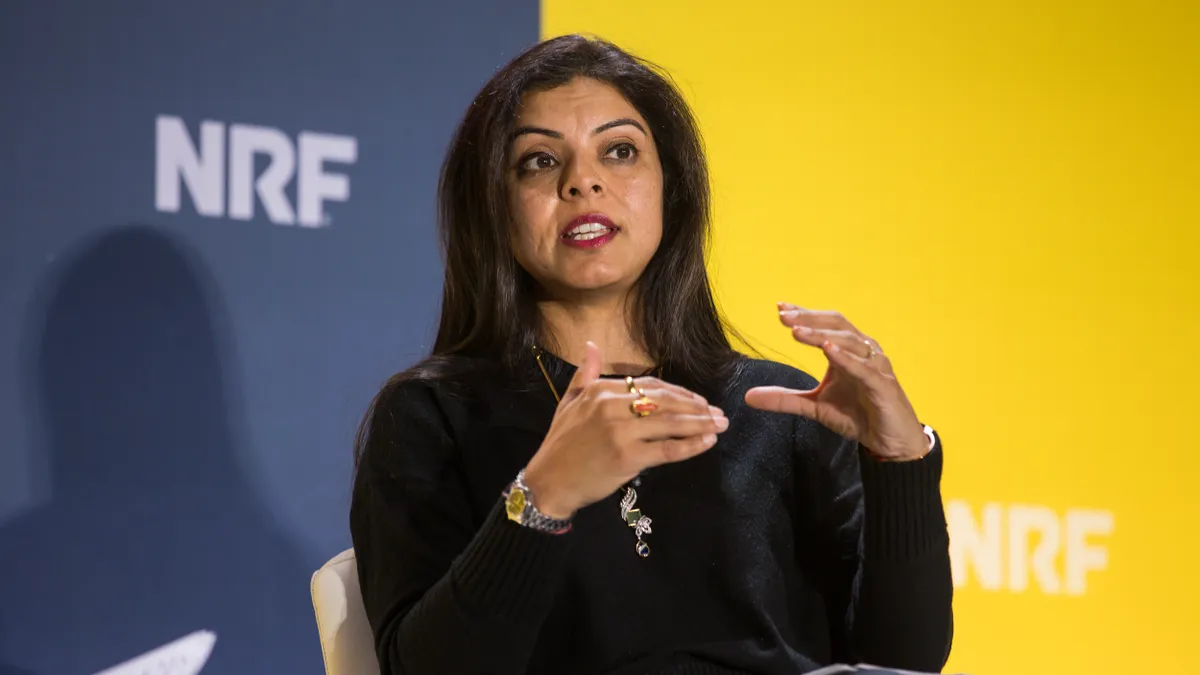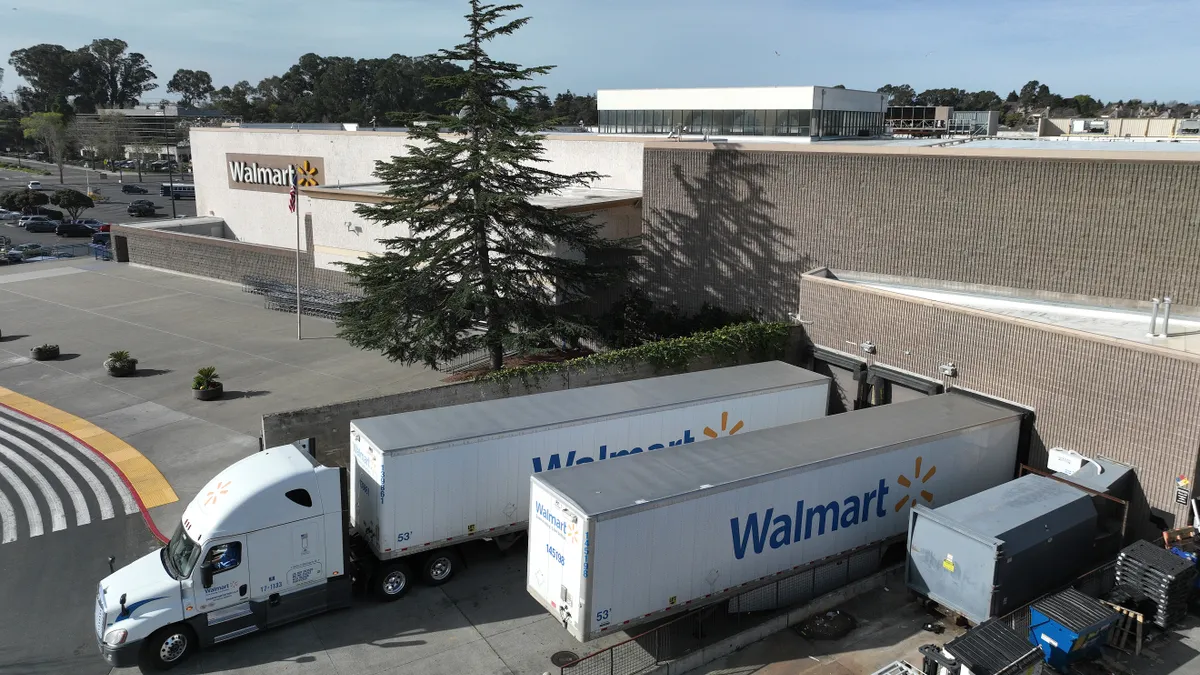On Jan. 14, the Office of the U.S. Trade Representative unveiled its 2020 Review of Notorious Markets for Counterfeiting and Piracy, a report detailing which markets are known for ample fake goods. High levels of knockoffs were sold through Amazon's foreign domains, including in the U.K., France, Germany and Italy, the report noted.
"Holding intellectual property rights violators accountable and ensuring that American innovators and creators have a full and fair opportunity to use and profit from their work is critical for both physical and online markets," U.S. Trade Representative Robert Lighthizer said in a statement.
Over the years, the e-commerce giant has introduced various measures to fight fraudulent sellers on its platform. Despite these efforts, brands and retailers worry that Amazon lacks the ability to review and approve every merchant selling items through the platform. Its counterfeit removal procedures can be time-consuming and burdensome, even for brands participating in the company's brand protection programs, the report noted.
The 2020 report is among the last from the former Trump administration, during which Congress summoned Amazon's founder Jeff Bezos for a hearing regarding the platform's dominance and the prevalence of fake or stolen merchandise sold there. Now that President Joe Biden has taken office, it remains to be seen whether Congress or the White House will continue scrutinizing Amazon's knockoff goods problem, leaving retailers to fight fraud with or without Amazon's help and consumers to wade through what may be knockoff or dangerous merchandise, sources say.
Amazon's counterfeit battles
Amazon and its competitors have been fighting knockoffs for years, but Amazon's counterfeit problem has been a particular concern for brands, retailers and lawmakers.
Over the past few years, Amazon has introduced new initiatives aimed at combating counterfeit sellers. In March 2019, the company launched Project Zero, which uses machine learning to detect and remove suspected fake goods. Last year, the platform piloted its live video verification program to remotely validate potential sellers and launched its international "Counterfeit Crimes Unit" to fight fraudulent sellers with the help of former federal prosecutors, investigators and data analysts.
The platform has also been teaming up with brands like KF Beauty, Valentino and most recently Salvatore Ferragamo in court to sue fraudulent merchants.
"We do not allow counterfeit products in our store, and we have made it crystal clear that we take aggressive action to hold accountable bad actors who attempt to evade our proactive protections," Dharmesh Mehta, vice president of customer trust and partner support at Amazon, said in a statement. "Through our Counterfeit Crimes Unit, we are working closely with luxury and cosmetics brands, small businesses, and brands with global name recognition. We will continue to fight to protect intellectual property from small family-owned businesses through Fortune 500 companies."
Alan Behr, partner at Phillips Nizer, said taking counterfeiters to court is an effective yet "whack-a-mole" strategy. For Amazon, it's difficult to police counterfeiters given the volume of knockoff goods and the demand for them, Behr added.
Though Amazon has offered to assist businesses regardless of their size to safeguard their intellectual property from fraudulent merchants, these cases are only a deterrent against criminals who are caught, and aren't enough to dissuade knockoff sellers who've evaded accountability, said Jay Kennedy, assistant professor of criminal justice at Michigan State University.
"The rhetoric around it when you talk about, 'This is going to deter people from using our platform to sell their malicious wares.' No, it's not because counterfeiters know that there's a low likelihood they're going to get caught," Kennedy said. "'If they are caught' has an even lower likelihood that they're going to be identified and gone after and an even lower likelihood that there's going to be a punishment."
Kennedy noted that it is surprising that eBay wasn't mentioned in the Notorious Market report because of its issues with counterfeit products in foreign markets. EBay also has introduced programs to verify the authenticity of items like sneakers, luxury watches and sports memorabilia sold through the platform. The company also unveiled a "certified refurbished" program in October for reselling used goods.
Will lawmakers step in?
Despite the increased scrutiny of Amazon and other large tech companies last year, there seems to be less political pressure to further regulate or break up companies like Amazon, because the commercial harm may be of less interest to politicians, Behr said. The counterfeit and stolen goods problem on e-commerce platforms has catalyzed retailers, trade organizations and manufactures to join the Buy Safe American coalition. The group is pushing for the passage of the INFORM Consumers Act requiring online marketplaces to verify sellers and collect their information.
In addition to the INFORM Consumers Act, Kennedy pointed to several bills that could change the liability online marketplaces face or provide consumers with more transparency: SANTA Act, which requires online marketplaces to share verified information on children's product sellers with consumers, and the SHOP SAFE Act, which imposes liability on e-commerce for the use of counterfeit marks by third parties. If one of these bills or an amalgamated version of them passes, Kennedy said he foresees a possibility that Amazon could impose liability on online marketplaces for products sold through them or require more seller transparency, adding that these measures could have bipartisan support.
The Digital Millennium Copyright Act provides protection for online sellers from infringement claims as long as the platforms can self police goods sold through the marketplaces, Behr said, adding that one could debate how effective these platforms are at self-regulation. It's not clear whether the government is prepared to make Amazon liable for the products sold through its platform, he said.
"They tried to invent regulation through private efforts of patrolling, because the expectation in most businesses is [it's] better that we manage ourselves than that the politicians come in and do it for us or hire people that don't understand what we do or are not sympathetic to what we do," Behr said. "How sympathetic is a low-paid regulator [going to be?] Is that person going to be as energized as Chanel?"
For European brands, the problem with counterfeit sales through Amazon's domains is not just about the loss of a sale but rather the higher likelihood that a poorly made product will be sold in association with their brand, Behr said.
But as counterfeit sellers continue to sell goods via the platform, some fraudulent products leave consumers at risk. Behr, for example, once represented an eyewear brand in federal court that sued a counterfeit seller whose glasses temples could separate from the frame and expose a sharp prong by the wearers' eyeball. Besides luxury knockoffs that may be hazardous, Kennedy pointed to potentially dangerous medicines or other products sold through online marketplaces, too.
Though Amazon has its value proposition price, product selection and fast service, it's not always clear how much the retailer has prioritized providing top-quality goods. However, if Amazon could get its counterfeit problem under control, it would have a competitive advantage in comparison to other online marketplaces, Kennedy said.
"It only makes sense to invest in these types of activities to be kind of the market leader in terms of protecting brands and displaying high levels of quality and the protection of your consumers," Kennedy said. "Whether it's reality or not, the perception that this is a place that is trusted, it is a website that I know I can go to, to get good quality products without exposing myself to a large amount of risk."







